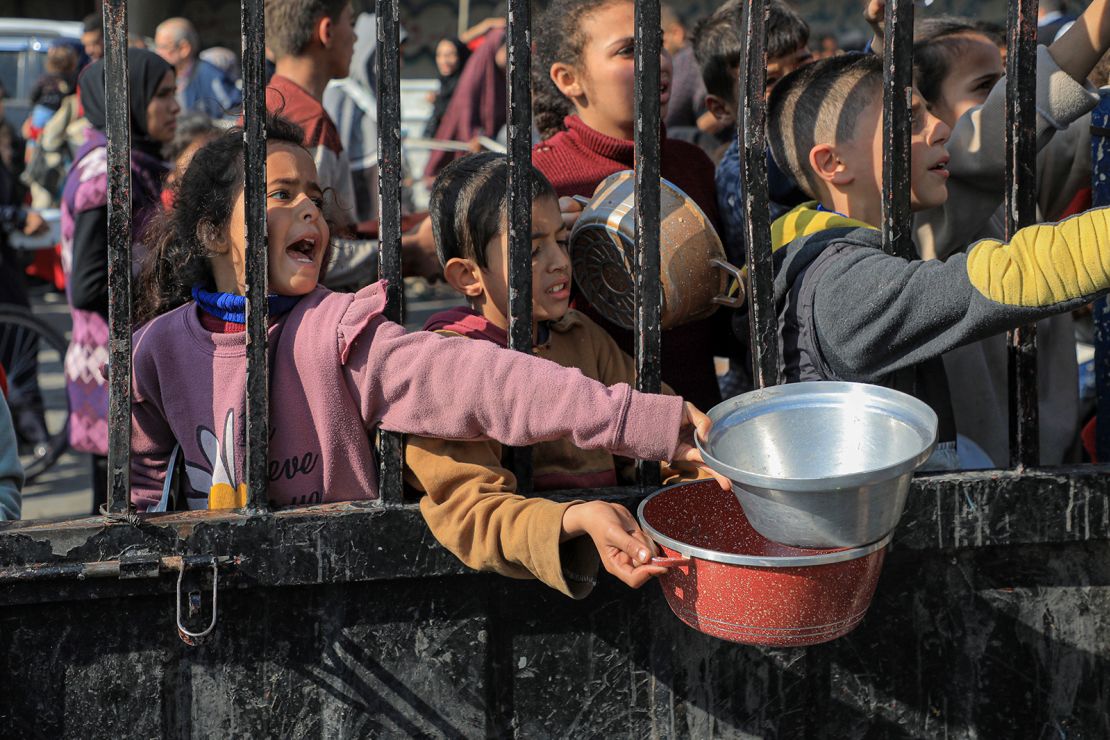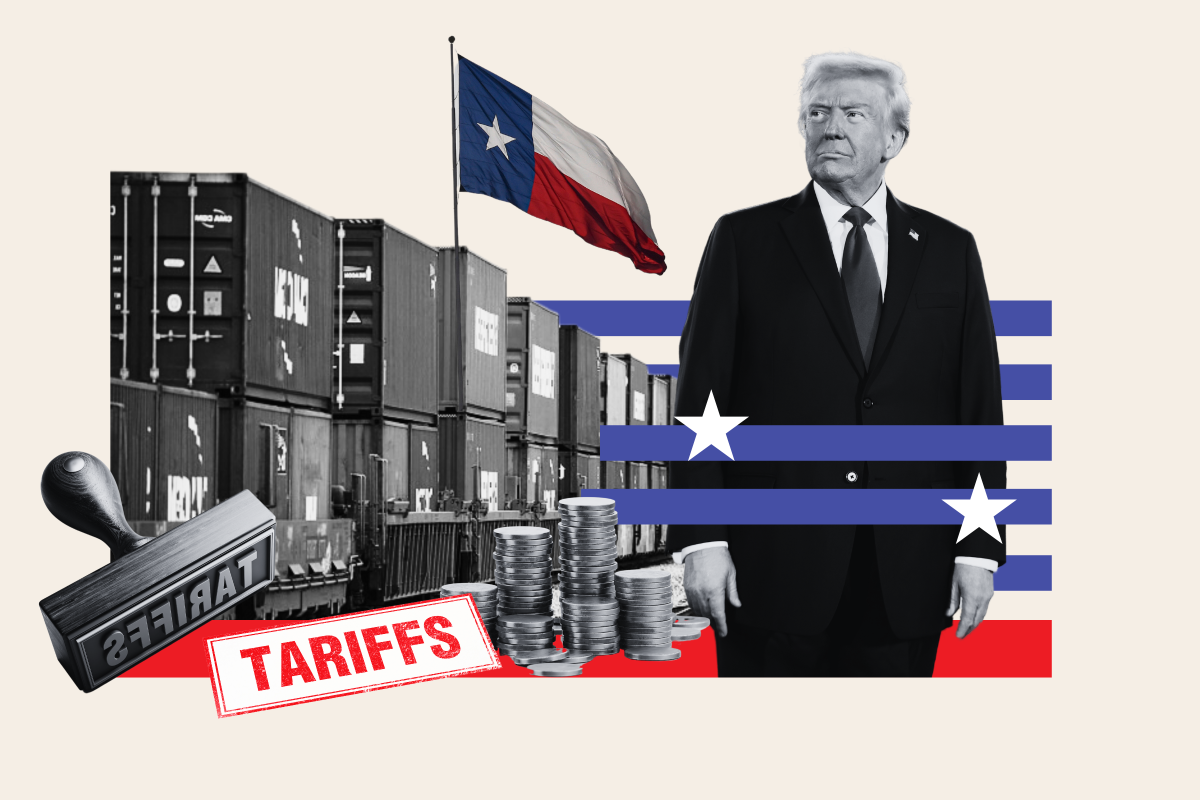Israel's Blockade: The Devastating Impact On Gaza's Health And Security

Table of Contents
The Humanitarian Crisis: Impact on Healthcare in Gaza
The Gaza blockade has created a severe humanitarian crisis, with the healthcare system bearing the brunt of its consequences. The restrictions imposed have led to a multitude of problems, significantly impacting the well-being of the population.
Limited Access to Medical Supplies and Equipment
Chronic shortages of essential medicines, medical equipment, and diagnostic tools plague Gaza's healthcare system. This severely limits the ability of medical professionals to provide adequate care.
- Medicine Shortages: The blockade restricts the import of vital medications, particularly for chronic diseases like cancer and diabetes. Patients often lack access to chemotherapy drugs, insulin, and other life-saving medications.
- Equipment Deficiencies: A lack of advanced medical equipment, including dialysis machines and imaging technology, further hampers the provision of quality healthcare. This leads to delayed diagnoses and treatments, resulting in poorer health outcomes.
- Transfer Restrictions: Transferring patients to hospitals outside Gaza for specialized treatment is extremely difficult and often delayed due to bureaucratic hurdles and permit restrictions imposed by the blockade. This delay frequently leads to preventable deaths.
- Impact on Mortality Rates: The combined effect of these limitations results in significantly increased infant and maternal mortality rates and a decreased life expectancy compared to other regions. For example, the infant mortality rate in Gaza is considerably higher than in other parts of the world.
Overburdened Healthcare System
The already fragile Gaza healthcare system is struggling under the immense strain caused by the blockade. The limited resources are stretched thin, leading to inadequate care for many.
- Staff Shortages: The lack of sufficient medical personnel, particularly specialists, further exacerbates the crisis. Many doctors and nurses have left Gaza due to the difficult working conditions and lack of opportunities.
- Power Outages: Frequent power outages, often lasting for hours, hinder the operation of essential medical equipment, compromising patient care and potentially leading to fatal complications.
- Infrastructure Damage: Recurring conflicts, often exacerbated by the underlying tensions created by the blockade, damage the healthcare infrastructure, requiring extensive repairs and further reducing available resources.
- Psychological Toll: The ongoing crisis takes a heavy psychological toll on healthcare workers, who are constantly faced with limited resources and the suffering of their patients. This stress contributes to burnout and further weakens the system.
Economic Suffocation and its Security Implications
The Gaza blockade has imposed a severe economic stranglehold on the territory, leading to dire consequences and significant security implications.
Restrictions on Movement and Trade
The blockade severely restricts the import and export of goods, crippling the economy and hindering reconstruction efforts.
- Import Restrictions: Essential goods, including construction materials, food, and fuel, are subject to strict controls, creating artificial scarcity and driving up prices. This impacts almost every aspect of daily life in Gaza.
- Export Limitations: The restricted export of goods prevents Gaza from developing its economy and becoming self-sufficient. This creates a cycle of dependency and further entrenches the poverty affecting the population.
- Unemployment Crisis: The severely limited economic opportunities have resulted in extraordinarily high unemployment rates, leading to widespread poverty, social unrest, and heightened vulnerability to radicalization.
- Agricultural Impact: The blockade restricts access to seeds, fertilizers, and agricultural equipment, negatively impacting agricultural production and food security. This contributes to malnutrition and food insecurity among the population.
Increased Vulnerability to Security Threats
The economic hardship and desperation resulting from the blockade create a breeding ground for extremist groups.
- Radicalization: The lack of opportunities and the sense of hopelessness increase the appeal of radical ideologies and groups that offer a sense of purpose or belonging.
- Security Instability: The heightened tensions and frustrations caused by the blockade increase the potential for further conflict, both internally and with external actors.
- Internal Security Challenges: The economic hardship undermines the Palestinian Authority’s ability to maintain order and security within Gaza, increasing the risk of internal conflict and instability.
- International Aid and Security: While international aid plays a role in mitigating some of the humanitarian crisis, it cannot fully address the root causes of insecurity brought on by the blockade's economic impact.
International Legal and Ethical Considerations of the Gaza Blockade
The Gaza blockade raises serious concerns regarding international law and ethics. Many argue that the restrictions violate fundamental human rights.
Violation of International Humanitarian Law
The blockade is widely viewed by many as a violation of international humanitarian law (IHL) principles.
- Proportionality: Critics argue that the blockade's disproportionate impact on civilians, including women and children, violates the principle of proportionality in IHL.
- Right to Health: The blockade's severe limitations on access to healthcare violate the fundamental right to health, as enshrined in international human rights law.
- Right to Life: The restrictions on access to essential goods and medical care directly threaten the right to life of Gaza's residents.
- Relevant Treaties: The blockade is widely seen as potentially violating numerous international treaties and conventions, including the Geneva Conventions and the International Covenant on Economic, Social and Cultural Rights.
Calls for Accountability and International Pressure
The international community must hold those responsible for the blockade accountable and exert pressure to lift it.
- International Monitoring: International organizations play a crucial role in monitoring the situation in Gaza and documenting the violations of international law.
- International Pressure: International pressure, including sanctions and diplomatic efforts, is essential to compel Israel and Egypt to lift the blockade.
- Condemnation: Numerous international bodies and human rights organizations have condemned the blockade, calling for its immediate end.
- Legal Challenges: The legality of the blockade is being increasingly challenged in international legal forums, although this process is often long and complex.
Conclusion
The Gaza blockade's devastating impact on the health and security of the Palestinian population is undeniable. The severe limitations on access to essential medical care, the crippling economic consequences, and the escalating security risks demand immediate action. The international community must exert significant pressure on all involved parties to lift the Gaza blockade and work towards a lasting solution that prioritizes the well-being and human rights of the Palestinian people. Only through concerted efforts to alleviate the suffering caused by the Gaza blockade can we hope to create a more secure and sustainable future for the region. We need to advocate for the end of the Gaza blockade and demand accountability for those responsible for its devastating consequences. Let us work together to ensure that the suffering of the people of Gaza ends. Ending the Gaza blockade is not just a humanitarian imperative; it is a crucial step towards achieving lasting peace and stability in the region.

Featured Posts
-
 Is A Crazy Rich Asians Tv Show Finally Happening
May 11, 2025
Is A Crazy Rich Asians Tv Show Finally Happening
May 11, 2025 -
 Ufc 315 Belal Muhammad Vs Jack Della Maddalena Full Main Card Announced
May 11, 2025
Ufc 315 Belal Muhammad Vs Jack Della Maddalena Full Main Card Announced
May 11, 2025 -
 Anthony Mackies Sneaker Role A Sneak Peek At The New Kids Movie
May 11, 2025
Anthony Mackies Sneaker Role A Sneak Peek At The New Kids Movie
May 11, 2025 -
 Tam Krwz Ks Adakarh Kw Dyt Kr Rhe Hyn
May 11, 2025
Tam Krwz Ks Adakarh Kw Dyt Kr Rhe Hyn
May 11, 2025 -
 Trumps Tariff Threat Commercial Aircraft And Engines At Risk
May 11, 2025
Trumps Tariff Threat Commercial Aircraft And Engines At Risk
May 11, 2025
